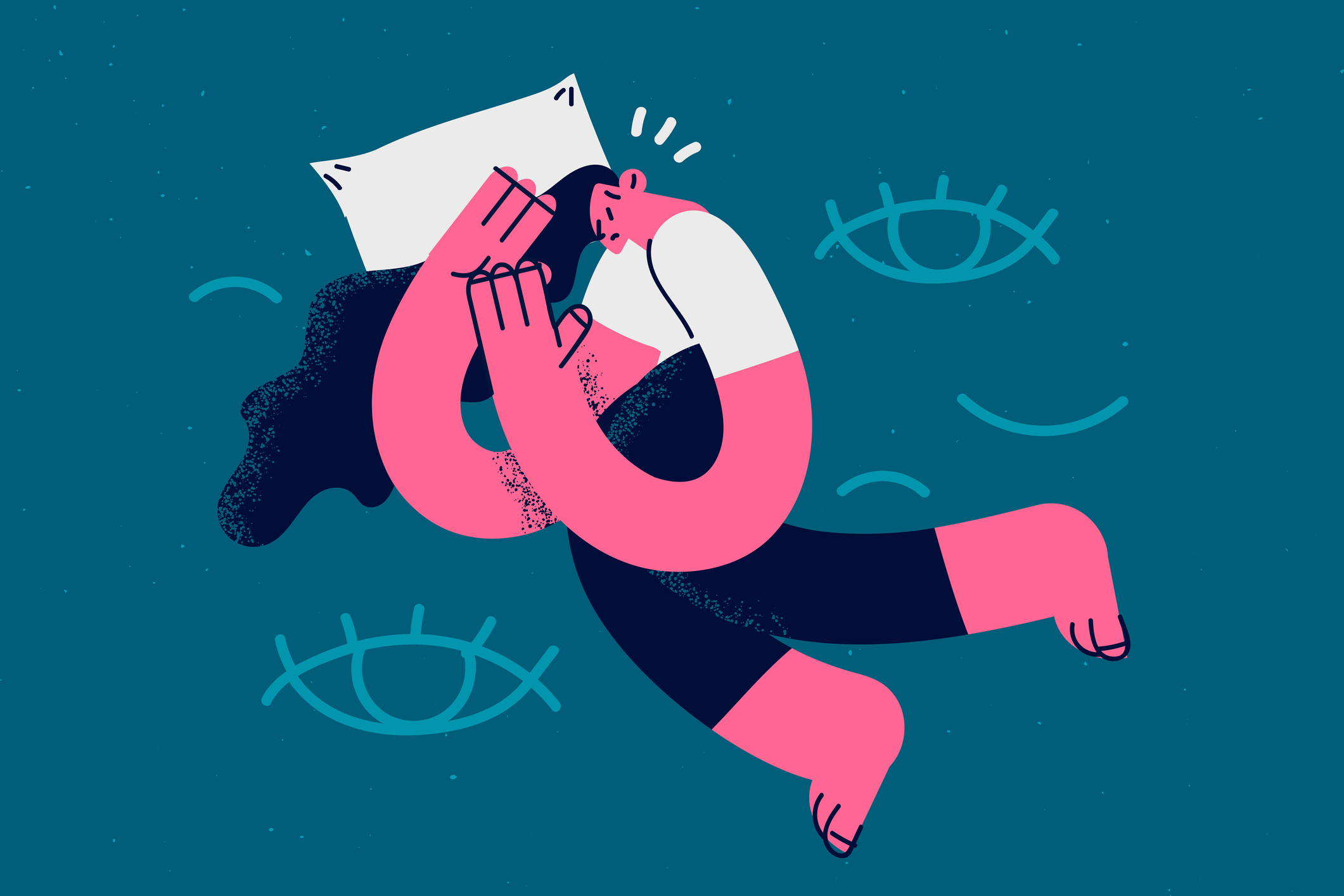From time.com
By Pedram Navad
Like our emotions, negative and irrational thoughts will also adversely affect our sleep. No doubt, once we are in bed, all sorts of thoughts will invade our mind, anything from the work that we must complete to financial issues that are a cause of concern. Because sleep is solitary process, we have a great deal of time (the entire night!) to think about our problems and work through all the scenarios by ourselves. Not only is this a daunting task, but it’s also a problematic one: At a moment when we are supposed to be relaxing, we are confronting these issues alone and in a state of irrationality, especially if we are sleep deprived.
False beliefs about sleep or other subject matters also negatively impact our sleep; it’s a common thread among a great number of my patients. In a state of hyper-arousal (as occurs with insomnia) or sleep deprivation, the mind ruminates about anything, whether this be logical or illogical (primarily the latter). The most common illogical thought that occurs as we experience insomnia is the effect it will have on us the subsequent day. We feel that we cannot function adequately at work or home, and this will affect our performance, which would ultimately lead to disastrous consequences. We may convince ourselves that we are close to termination at our jobs, or that our loved ones are annoyed with us, or that we will sustain a potentially hazardous car accident. This is called catastrophizing, and we can counter this irrationality by recalling how few instances there are when our fears have come to fruition.
If you experience insomnia most nights, and if you have convinced yourself that your insomnia is putting you in grave danger, the percentage of these occurrences must be high. In other words, if your insomnia was a legitimate cause of termination, a breakup, or more, then you would be experiencing these things all the time. But reality tells us this is not so: You may want to formulate evidence for these occurrences to see that the evidence does not conform to reality and try to write these down. As always, writing is helpful because if these thoughts occur again, you have already dismissed them as not worthy of further elaboration.
Evaluating your thoughts considering this new evidence, you may want to modify your initial irrational thought and rephrase it in a way that is realistic. For example, if the irrational thought is that you will get fired if you don’t sleep and perform your best, rephrase it in a way that conforms to what happened in the past in your bouts with insomnia: “I may not perform my best at work and may be irritable, but I will get through this day without being terminated.”
Consider also debunking myths that may not necessarily relate to your sleep. Recognize that you may not need eight hours of sleep, a thought that could have guided your perception of perfect sleep and the inability to attain this holy grail. A recent study conducted at Washington University School of Medicine showed that the “sweet spot” of sleep is six and a half hours, where cognitive performance is stable over time. Also, recall that going to bed early may be detrimental because your inability to fall asleep at that time may make the connection between your bed and sleep less robust.
Instead, recognize that your best option in this situation is to prolong the time that you go to bed, so that you can not only build up a greater homeostatic drive to sleep but also to sever the links between your insomnia and the bed or bedroom environment. Looking specifically at the homeostatic drive to sleep, you may see that the nights you did not sleep well actually led to better nights subsequently. This is because the drive to sleep has had time to build up and naturally put you to sleep. Adenosine is an important sleep-inducing substance that builds up naturally in our brain. Once it has reached a threshold with higher and higher concentrations, it inhibits arousal and causes sleepiness. It leads to increased sleep pressure and subsequent rebound sleep. In other words, adenosine is like a natural sleep medication that our brain produces to ensure that we fall asleep if we haven’t slept for a while. In essence, this compound is telling us to “let go” and let things take their course, naturally.
Another method that I have found to be increasingly helpful but more difficult to grasp when it comes to insomnia is countering the catastrophizing by pushing it to its limit. When you start worrying, introduce the mantra of “to hell with it all,” so you can find peace in your worries. Essentially, if you’re already thinking that your life has gone or will go wrong, you have nothing left to lose. This approach pushes the catastrophizing to such an extreme degree that, when it comes time to worry, you’ve already encountered the worst-case scenario and come to terms with it.
Most people have difficulty imagining their lives as “messed-up” because that is what they are trying to desperately avoid. But when you have already made this a foregone conclusion, you have already let go; use it to your advantage and reverse it. As the ancient Chinese philosopher and writer Lao Tzu once said, “When I let go of what I am, I become what I might be.”
So let go, and let sleep do its thing—as it was meant to do.
https://time.com/6253219/how-to-stop-catastrophic-thinking-sleep/

No comments:
Post a Comment